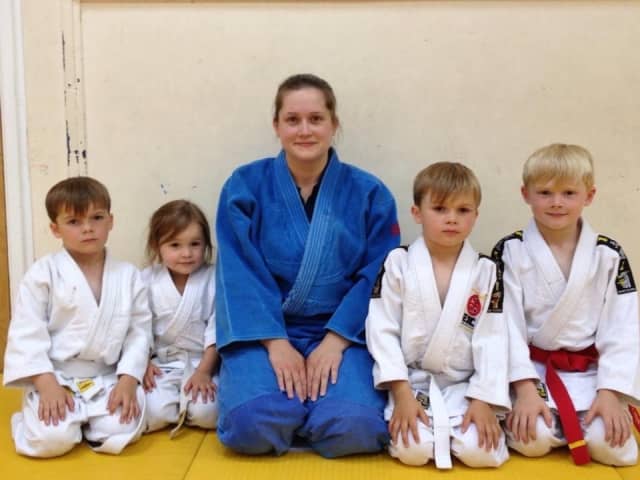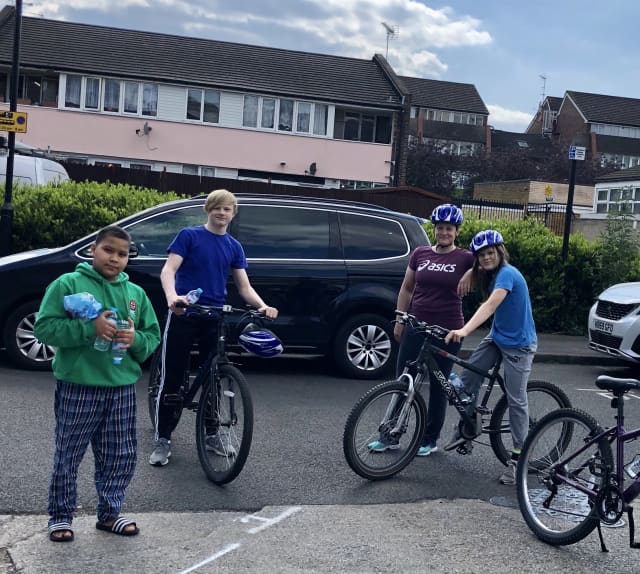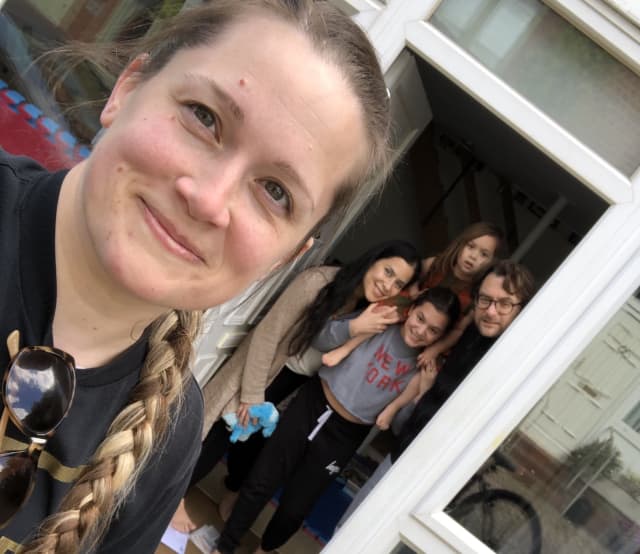I live in London, running the very busy Ealing Judo Club. We have a thriving, diverse membership, spanning all competitive age categories, including men and women and with nationalities giving us approximately 40 different languages within the club setting. It’s a real melting pot of cultures and experiences. It’s a joy!
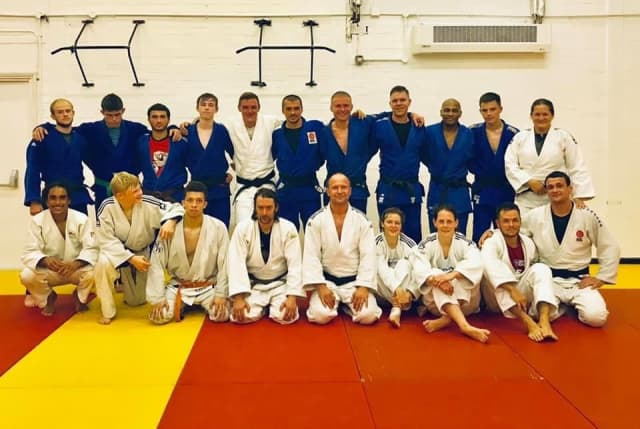
Nico, “When many people are afraid by differences, why is it actually so important to create places like your judo club and how does the very essence of judo help to do that?”
Jo, “A judo club should be a place for anyone to be able to improve themselves, while they also contribute to the club’s community and the wider society. Our focus is Judo, working together and breaking down all the barriers we can that may have a negative impact on improvement and, as a consequence, on quality of experience. This is fundamental to the underlying philosophies of judo, as taught in the beginning by Jigoro Kano. We have to live and train in the current time, but the values of inclusion and development are no less relevant, maybe even more so.”
The imposed Covid-19 lockdown caused a dispersing of our judo community, physically at least, as everyone had to retreat into their homes, isolating from our normal contact. It’s traumatic on some level and has left many feeling disconnected, disjointed; a little levitation from the things that normally ground us. But, from a little way above it’s possible to gain a different perspective.
Nico, “Due to the pandemic, all of us around the world had to disappear suddenly from the surface of the Earth. How did you react to that? I remember that I was scared before it happened, when I saw it coming, but once it started I switched mode and decided that it was not worth it to complain; I just had to comply and I changed my mindset very quickly. How did you cope with the idea of being obliged to stay at home?”
Jo, “It has been a strange rollercoaster. In the beginning I was sure it would all be ok and we would pop out the other side and just go back to normal as if nothing had happened. Then there was a period of fear: would we survive financially? Would the club be able to survive being closed for so long? There was a lot of uncertainly, combined with genuine fear for our health, wanting to protect my children but also provide them with stability and confidence so that they wouldn’t have to carry the stresses this situation tries to tether to all of us. So we just did as we thought was right. We stayed at home, except for food shopping and daily exercise.”
I’m used to layer upon layer of organisation, from programme planning to logistics to club admin, goal-setting, juggling parenthood, meetings, school classes, domestic high performance systems, my own education... and the list goes on.
Then, stop!
It took a few weeks for my brain to realise it wasn’t required to burn its own cells at 100 miles per hour anymore. Then a little quiet. Then just lost.
Nico, “This is a very interesting point and crucial too. We had to change something in our daily programme but also inside of us to be able to deal with a situation which was totally out of our confort zone, out of our control in many ways. Once again, I’d be interested to know how judo as a philosophy helped you to do that?”
Jo, “Judo teaches us that to adapt is almost always the best policy. Those who are willing to adapt and to make choices to change when under the greatest pressure, are likely to be the winners. In this situation we are not facing an opponent in normal terms of winners and losers, but one which forces us to adapt or sink, without there having to be any losers. If we all adapt we can all win. This is a sort of luxury, in a way.”
We did as so many households did, cooked together and played board games in the evenings, across the time slots that had always been reserved for nage-komi and some very entertaining randori. It’s been a fantastic opportunity to spend that time with my children. We have never known evenings together, not since they were born. New coversations, sharing some fun online challenges, particularly enjoying an ‘extreme plank’ challenge and the ‘pull a t-shirt on from the handstand position’ challenge.
Then Nekoda nominated my oldest son to complete the 5-5-5 challenge: 5km per day for 5 days and nominate 5 other people. By this time, well into April, my sense of purpose had well and truly left the party. I was adapting to a new way but without knowing if any of my old goals were still achievable.
I told my son, Luke, to nominate me for the challenge. No-one nominated me; no-one nominates Sensei and risks the extra burpees in their next online session, so Luke had to do it.
The first day was pretty hard; I have to admit my fitness had left the party holding hands with my sense of purpose. I cycled it and was glad when it was over, especially as I had to borrow one of my children’s bikes. 14th April was day one. I completed the 5 days and now I’m at day 90, riding my own new bicycle, no days missed.
Nico, “Was then Luke obliged to make some extra burpees? Jokes aside, how did your children react to seeing you being involved more and more everyday?”
Jo, “They took it in their stride in the beginning, as they do with most things. They were born into judo and have spent their lives adapting and solving and seeing challenge as necessary for progress. Now though, as my routine has changed so much, they say really positive things about being proud. They joke about not being able to keep up with their mum. The 5km a day really was only a stepping stone. Now I am usually training twice per day, with a mix of cycling, running (this is new and I really don’t like it yet, but I am determined that I will, eventually), kettlebell training and body weight training.”
Destinations for cycling became an issue very quickly, as I’m a person who enjoys efficiency and giving every journey a function offers motivation. So I decided to combine the daily exercise with some much-needed contact with Judo club members, visiting their homes to wave and catch-up from a safe distance. I called it the ‘cycle-by series!’
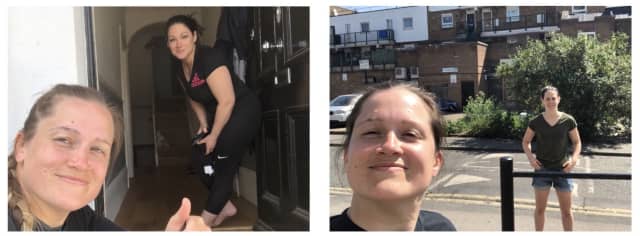
Nico, “How does is feel to be at day 90?Do you still have to force yourself to get on the bike or to run? Did it become automatic, like a need that comes from deep inside? The process is very interesting, because many people are afraid to begin. The first step is always the hardest and then we need to get momentum. I’d like to know what went through your head to reach such a level.”
Jo, “The simplest way to answer is to say that I was afraid not to begin! The consequences of not forcing myself to be healthier and of continuing to find reasons not to train, are huge. I work in sport, in Judo and there are no excuses to look and live like someone who doesn’t believe in all that is good within sport. Now it is automatic. This pandemic is not over yet. Some days are still really tough mentally, but something is planted in my mind now that makes me train, even on the most difficult days. To show my children that, that is the right way, it’s compulsory. Hard work, small steps, but always forward.”
The cycle-by series has been so much fun and has created a different kind of unity and appreciation. Seeing real-life faces of people I had been separated from, having been used to seeing them almost daily and then not for weeks, has been wonderful and has helped some of them to stay motivated to keep healthy too. Many have since begun cycling for their own fitness. A few have reciprocated the visit. Many have provided ‘Scooby Snacks’ and protein smoothies along the way.
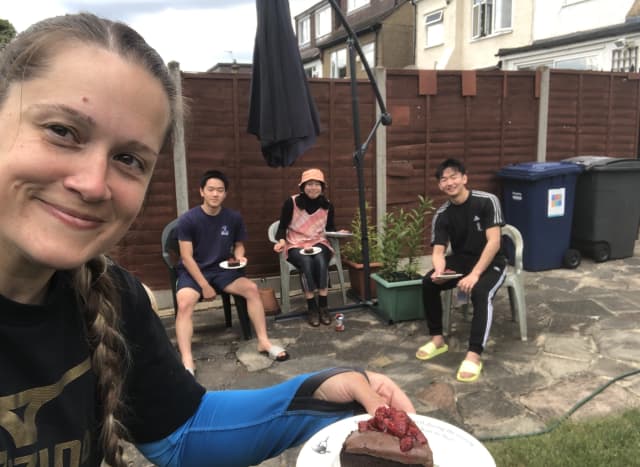
Nico, “You knew your club members, of course, but you must have discovered new dimensions, a new understanding of who they really are. Do you think that it will help you in the future? I’m trying to draw out what could be the consequences of this period. We can’t really measure all of them and it will require a lot of time to understand what happened, but I guess that we can already see some changes.”
Jo, “there has been the potential to lose contact completely and this is not just about judo, but about how we live day to day, how we communicate and how we co-ordinate our communities. Finding new ways to share memories and to begin to create a set of links that don’t only revolve around the tatami, felt necessary. Whether we are going to be back together again soon or not, to find opportunities within the upheaval for connection, valuing each other, giving time to one another, seems to be the right thing. I am sure that once we are back together, these actions will strengthen our club and bring us all together maybe even more than we were before.”
Letting everyone know the club and the coach are still here for them and that they are valued even without the shared mats under our feet is very powerful. Children, national squad members, veterans, everyone is included. I’ve even visited a mum who made tea for our events for many years, a committee member more than 40km away. I have seen house boats, apartments, family members, pets and new babies. I’ve received home made elderflower cordial, a Persian melon, so much spontaneous generosity and a lot of ice cold water to rehydrate me before the return trips. I cycle it but we all share it.
Staying together isn’t always a gathering to participate in a physical activity, sometimes it’s just the choice to share contact, even in unusual circumstances, knowing we have a special link through our judo club. We are choosing to connect differently. But the mats are waiting for us.... soon.
Club families visited: 63
Current/past club members visited: 91
Kilometres travelled since 14th April: 2070
Sets of bicycle brake pads worn through: 2
Longest cycle in a day so far: 85.7km

